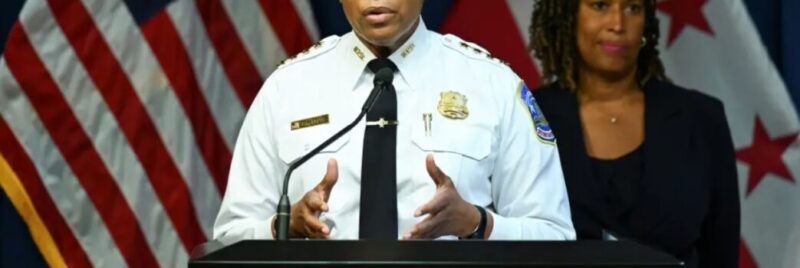DC Officials Discuss Trump's Federalization
When President Donald Trump announced that he would federalize Washington, D.C.’s law enforcement to combat the city’s worsening crime crisis, it was a bold move meant to restore order in a capital increasingly defined by lawlessness. But almost immediately, the very dysfunction that drove the decision was laid bare for the nation to see.
At a press conference following Trump’s announcement, D.C. Police Chief Pamela Smith was asked a straightforward question about the chain of command—something any top law enforcement official should be able to explain without hesitation.
Instead, Smith responded with, “What does that mean?” The exchange was brief but telling: if the chief of police in the nation’s capital cannot articulate who is in charge during a crisis, it’s a glaring indictment of the city’s leadership.
Reporter: "Do you know what the chain of command is now?"
D.C. Police Chief Pamela Smith: “What does that mean?"pic.twitter.com/bHZjMsBg3G
— Greg Price (@greg_price11) August 12, 2025
Trump’s plan, announced Monday, invokes Section 740 of the District of Columbia Home Rule Act, allowing the federal government to assume direct control of the D.C. Metropolitan Police Department.
Under the plan, additional federal resources—including the National Guard—will be deployed alongside local officers. The goal is clear: restore law and order by bypassing the city’s political leadership, which has been widely criticized for prioritizing leniency over enforcement.
In recent years, the D.C. Council’s soft-on-crime policies—reduced penalties, weakened sentencing guidelines, and fewer tools for law enforcement—have coincided with a sharp rise in violent crime. Carjackings, assaults, and homicides have surged, leaving residents and visitors feeling increasingly unsafe.
Federal intervention, in Trump’s view, is the only way to stabilize the city and reestablish public confidence.
The chief’s confused response at the press conference has already become a symbol of the broader problem: a leadership class more comfortable with political posturing than with decisive action. For critics of D.C.’s local government, it’s proof positive that the city’s top officials were neither prepared nor willing to take the steps necessary to reverse the crime wave.


